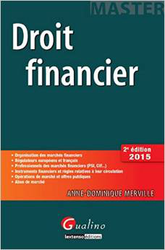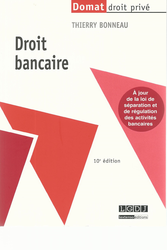Sectors
Jan. 13, 2015
Breaking news

Jan. 12, 2015
Breaking news

France Stratégie is the French public body that advises the French Government on economic and social policies.
In January 2015, one of its researchers, Medhi Nemri, published an analytical note: "Demain, l'Internet des objets (Tomorrow, the Internet of Things)".
The release sees the Internet as a "essential facility" whose development capabilities will allow interaction between objects: the "Internet of Things". This world of "connected devices" would be a "tipping".
Indeed, the objects are connected in the industrial system (smart manufacturing) and the municipal utilities are beginning to organize themselves in the same way. The note stresses the importance of fostering an open platform for all public services. Private space is organized in the same way, for example health, but individuals often see these connected objects as gadgets. Yet by the technology platforms, interconnection allows a general improvement of services. The more traditional companies may depend on Internet companies developing these platforms.
The issue of power of this economy are standardization and standard naming of objects. In this ecosystem, data are the creation of economic value.
The author of the paper proposes the idea of a "right to experiment" way to foster innovation. This would in mobility, health management, insurance. The note doesn't specify the consequences of such a "right to experiment": Does this mean a decline in sectoral regulations?
In any case, the note stresses the need to reaffirm the rights of persons and to protect privacy.
Jan. 7, 2015
Breaking news

According to the Indonesian press, the financial regulator of Indonesia will soon adopt new rules for financial regulation.
Regulator, Otoritas Jasa Keua - Indonesia Financial Services Authority (OJK) established in this form at the end of 2014, aims to make new arrangements for financial institutions to provide funds to companies in a more wider than previously, in particular for the sole purpose of allowing companies to invest or to have working capital.
Dec. 18, 2014
Breaking news

Virtual currency is a perfect example of the difficulties of interregulation: indeed, the bitcoins are currencies created on the Internet, usually to play games, such as poker. Thus intersect banking regulation, banking supervision, regulation and control of the game, Internet regulation itself.
____
Dec. 10, 2014
Sectorial Analysis

Constitutional Law will have an increasingly important role to play in regulatory Law. This is especially true since the State Council uses its power to filter itself become a sort of Constitutional Court or maybe a Supreme Court.
One can think so reading the UBS decision on the 5th of November 2014.
Indeed, to refuse to transmit to the Conseil constitutionnel (French Constitutional Council) the priority question of constitutionality formulated by UBS, the French Council of State gives what it believes to be the correct interpretation of the constitutional principle of legality of offenses and penalties in banking regulatory Law.
So to say there is no "question", the Conseil d'État says there is no "problem" because, through the interpretation it gives, the provisions of the Code Monétaire et Financier offers to the Supervisory Authority, the Autorité de Contrôle Prudentiel et de Résolution (ACPR), the power to sanction the bank for having not properly implemented its internal control, comply with the constitutional principle of legality of offenses and penalties, which is applicable in administrative repression.
But because to estimate that there is no "question", it must be said that there is no "problem", it is assumed that the High Administrative Court has acted as Constitutional Court.
We must take note. Is this really what the Constituent wanted by instituting a filter system by the constitutional law of the 23rd July 2008 establishing the priority question on constitutionality? Indeed, in this very sensitive and decisive question of repression in banking and finance, is it not at least to the French Constitutional Council itself to say the authoritative interpretation to remember that the constitutional text it is the guardian?
Dec. 5, 2014
Breaking news

To read the presentation (in French), click on the French flag.
Dec. 4, 2014
Breaking news

When one likes the "Financial law," one is delighted to open the second edition of the Droit financier (Financial Law), Frenche book written by Anne-Dominique Merville and publishes at Gualino - Lextenso édition (392 p.).
Indeed, the reader learns the most recent technical rules. If it is difficult to know "Financial law" this is because it doesn't really constitute a "branch of the law." It seems an accumulation of laws, rules, decisions and soft law adopted to serve the financial market.
Significantly way, in the book construction, there is no place especially for the "financial Regulation" while itsTitle II is about " Les régulateurs des marchés financiers" (The financial market regulators). This suggests that the financial regulatory system is primarily due to the regulatory body. This is maybe true.
Reading developments, it is observed that the European Central Bank is listed among "The financial market regulators".
For my part, for several years I do think that a central bank is a regulator. But as it is currently a supervisor and that there is a fundamental distinction between regulation and supervision. It's why it is necessary to demonstrate the transition from one to the other or intimacy between them, to affirm so easily that a central bank, monetary authority, is a financial regulator.
Yet the author assume acquired, showing that the qualification is already in the mind. The development will come after. It will impose yet because this change of qualification has important consequences. It involves jurisdictionalization of Central Banks that we still do not know and have not conceived.
Dec. 1, 2014
Thesaurus : Doctrine
Complete reference : Malecki, C., Publication de la directive RSE ou comment faire confiance à la gouvernance d'entreprise durable, Bull. Joly Société, 1st Dec. 2014, p.732 s.
Nov. 29, 2014
Thesaurus : Doctrine
Référence complète : Giraud, A., Exégèse de l'arrêt Groupement des Cartes Bancaires, RLDA, n°98, nov.2014, p.43-48.
Lire une présentation de l'arrêt et des conclusions de l'avocat général.
Les étudiants de Sciences po peuvent accéder à l'article lui-même par le Drive de Sciences po.
L'auteur rappelle ce cas dans lesquelles les banques membres du GIE ont été condamnées par la Commission européenne, en ce que les nouvelles règles adoptées au sein de ce GIE de gestion du mécanisme des cartes bancaires, qualifiées de "régulation" avaient un "objet anticoncurrentiel", ce qui suffisait à justifier la condamnation des opérateurs (décision de la Commission du 17 octobre 2007). Le Tribunal de Première Instance a confirmé cette analyse par un arrêt du 29 novembre 2012, estimant que la condamnation était fondée, puisque par sa nature un tel accord était "susceptible de produire des effets négatifs sur la concurrence".
Cela est invalidé par la Cour de justice, qui casse l'arrêt et renvoie le cas devant le Tribunal de première instance car le fait que l'accord soit "susceptible d'affecter la concurrence" ne le rend pas "anticoncurrentiel par objet".
Oct. 22, 2014
Thesaurus : 02. European Union
Oct. 15, 2014
Thesaurus : Doctrine
Complete reference: GERMAIN, Michel and MAGNIER, Véronique, Traité de droit des affaires - Les sociétés commerciales (Law Treaty - Commercial companies), 21th ed., LGDJ - Lextenso éditions, Paris, 1054 p.
This book is written in French.
On listed companies, see p. 799-1034.
Read paperback.
Read the table of contents.
Sept. 11, 2014
Thesaurus : 05. Court of Justice of the European Union
Read the Judgment (in French).
Read the conclusions of the General Counsel Nils Wahl.
Read about this Judgment a presentation of the article of Andrien Giraud, Exégèse de l'arrêt Groupement des Cartes Bancaires
May 15, 2014
Thesaurus : 02. European Union
Référence complète : Directive 2014/65/UE of the European Parliament and of the Council of 15 May 2014 on markets in financial instruments and amending directive 2002/92/CE and Directive 2011/61/UE.
May 15, 2014
Thesaurus : 02. European Union
Complete reference : Regulation EU n°600/2014 of the European Parliament and of the Council of 15 Mai 2014 on markets in financial instruments and amendin Regulation EU n°648/2021.
April 16, 2014
Thesaurus : Doctrine
Complete reference : Parléani, G., La responsabilité civile des agences de notation, in Gourio, A. et Daigre, J.-J., Mélanges AEDBF-France, Droit bancaire et financier, RB Éditions, Paris, p.555-580.
Les étudiants de Sciences po peuvent lire l'article par le drive de Sciences po, dossier "MAFR - Régulation".
Feb. 4, 2014
Thesaurus : Doctrine

Nov. 21, 2013
Thesaurus : Doctrine
Complete reference : Merville, A.-D., Typologie des contrats à terme in Collart Dutilleul and Le Dolley E. (ed.), Droit, économie et marchés de matières premières agricoles, coll. "Droit et Économie", Paris 2013, p.57-73.
Oct. 15, 2013
Thesaurus : Texts
Oct. 15, 2013
Thesaurus : 02. European Union
Sept. 3, 2013
Thesaurus : Doctrine

Complete reference: Bonneau, Thierry, Droit bancaire (Banking Law), coll. "Domat - droit privé", 13th ed., LGDJ - Lextenso édition, Paris, 2019, 912 p.
Read the coverback.
Read the table of contents.
